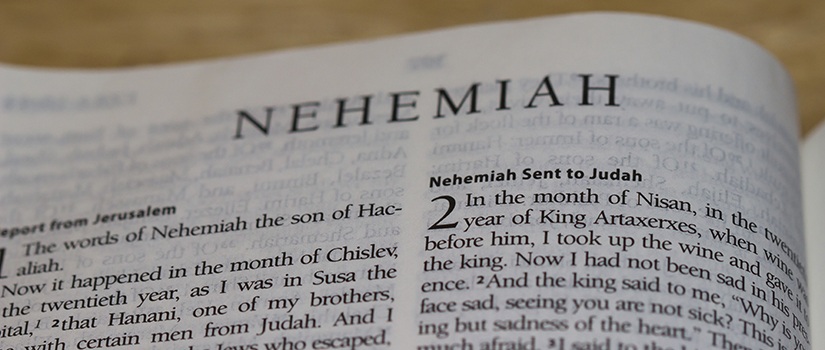The Four Monarchs
Introduction:
At the death of Nero in A. D. 69 it was the end of the most shameful life of any ruler in the history of the world. But on his death immediately a great power struggle ensued among the armies, the senate, and the powerful families of Rome. The result was much intrigue, tyranny, and murder which earned A. D. 69 the title of “the year of the four emperors.”
Paul, in the unfolding story of God’s dealings with mankind, now turns his attention to the cosmic struggle of the four monarchs—sin, death, grace, and life. In the passage we shall now consider (Romans 5:12-21), notice the four occasions on which the word “reign” appears.
~~~~~~~~~~~Contents~~~~~~~~~~
1. THE REIGN OF SIN
2. THE REIGN OF DEATH
3. THE REIGN OF GRACE
4. THE REIGN OF LIFE
~~~~~~~~~~~~~~~~~~~~~~~~~~~~~
Romans 5:12 “Wherefore, as by one man sin entered into the world, and death by sin; and so death passed upon all men, for that all have sinned:
13. (For until the law sin was in the world: but sin is not imputed when there is no law.
14. Nevertheless death reigned from Adam to Moses, even over them that had not sinned after the similitude of Adam’s transgression, who is the figure of him that was to come.
15. But not as the offence, so also is the free gift. For if through the offence of one many be dead, much more the grace of God, and the gift by grace, which is by one man, Jesus Christ, hath abounded unto many.
16. And not as it was by one that sinned, so is the gift: for the judgment was by one to condemnation, but the free gift is of many offences unto justification.
17. For if by one man’s offence death reigned by one; much more they which receive abundance of grace and of the gift of righteousness shall reign in life by one, Jesus Christ.)
18. Therefore as by the offence of one judgment came upon all men to condemnation; even so by the righteousness of one the free gift came upon all men unto justification of life.
19. For as by one man’s disobedience many were made sinners, so by the obedience of one shall many be made righteous.
20. Moreover the law entered, that the offence might abound. But where sin abounded, grace did much more abound:
21. That as sin hath reigned unto death, even so might grace reign through righteousness unto eternal life by Jesus Christ our Lord.
1. THE REIGN OF SIN:
I spent the first years of my life growing up in a country atmosphere with woods to play in and trees to climb, and flowing streams to wade and fish in. The hillsides were strewn with wild flowers in the spring, and the air was pure, clean and refreshing. Birds and wildlife were abundant and everything was always so peaceful. Since those days I have lived in several other locations, small towns, large cities, and have traveled over the entire United States and many foreign countries.
I now live not far from the area I grew up in, and drive by it now and then. My how things have changed, the road that I once could almost jump across has become an interstate, and the old house is no longer there and has been replaced by a new one. The old country church that we could hear the singing and preaching of God’s word has been demolished. My how things have changed in my lifetime.
Places like that are few and far between, and we are the poorer because of it—not only because we have less chance to draw refreshment from our environment but also because we find it harder to imagine the beauty and glory of Eden. If our tarnished world clouds our understanding of Paradise, how much more must our experience of mankind warp our understanding of man as he was created? Milton tried to recapture some of man’s grandeur when he described man as: “The master work, the end of all yet done; a creature who not prone and brute as other creatures, but endued with sanctity of reason, might…to worship God Supreme who made him chief of all his works… .”
The Psalmist David also tries to describe man’s beginning days,
Psalms 8:4. “What is man, that thou art mindful of him? and the son of man, that thou visitest him?
5. For thou hast made him a little lower than the angels, and hast crowned him with glory and honour.
6. Thou madest him to have dominion over the works of thy hands; thou hast put all things under his feet:
There is no way to explain the pollution of Paradise and the perversion of man outside the ‘Doctrine of the Fall.’ That “sin entered into the world” is an incontrovertible truth, but it is not treated with the solemnity it deserves. Part of the problem is that in our preoccupation with sins and our struggle against them, we have tended to ignore the underlying fact of sin. Adam’s sin was a calculated decision to disobey God and to take the consequences of his own free action.
Whatever debate may rage about the relative merits or demerits of the female propensity to delusion as exemplified by Eve, there is no debate about Adam. Adam was not misled; he walked right into rebellion with his eyes wide open and his mind made up, he knew better. Paul describes Adam’s action as “transgression,” “offense,” and “disobedience.” The immensity of this action cannot be overlooked because it introduced into the world something previously unknown, sin.
Paul expresses the enormity of Adam’s action by such expressions as: “by the one man’s offense many died,” “as by one man’s offense judgment came to all men,” and in his first Corinthian letter he writes, “in Adam all die” (1 Corinthians 15:22). Bruce calls this kind of thinking “the Hebrew concept of corporate personality.” Something which our individualistic style of thought and life may find hard to grasp, even though we accept John Donne’s famous adage, “no man is an island, entire of itself.” Nevertheless the fact of the solidarity (all came from one source, Adam) of the human race must be addressed.
When Albert Einstein published his theory of relativity, it is said there were only twelve men who were intelligent enough to understand its implications. Forty years later the number had risen to millions as the horror of Hiroshima unfolded. Relatively few could see great significance in E = mc2, but even fewer failed to understand that through one man the race had been ushered into the atomic age. There was no going back and there were no exceptions, because in Einstein atomic reality had come upon all men.
When a man introduces something new into human experience, the race will always be left to live with the consequences. So when sin entered the life of Adam, it also entered the experience of a race as yet unborn. If it be objected that those locked up in Adam’s loins could hardly be said to have been introduced to sin in Adam, it should be remembered that in Adam they were introduced to everything, for without him as source they had nothing, and if he had died they would not even have had life.
Sin having entered human experience, it then proceeded to “abound” (Romans 5:20). Adam’s sin, as we have seen, was a calculated denial of God’s authority and a clear statement of his intention to go his own way. When Adam was lured into sin the whole race of humans entered into sin along with him. I say ‘lured into sin’ because as yet Adam had no inclination, disposition, or propensity to sin. Adam was created and placed in the garden without the very thought or understanding or knowledge of sin. His mind was pure and uncontaminated with evil thoughts.
That is not to say that Adam didn’t know better because God had made it plain that they were not to eat of the Tree Of Knowledge Of Good And Evil. God also made it plain to him the consequences of eating of the forbidden fruit. So Adam knowingly and willingly disobeyed God and brought the consequences upon the human race.
Adam’s sin brought the ‘inclination’ or ‘propensity’ of sin into every living human. In other words mankind has a ‘leaning’ towards sin. “For all have sinned, and come short of the glory of God; (Romans 3:23). Subsequently, through the Law of Moses, man was made aware in more detail of the divine will as it “came on stage alongside” (the literal translation of “entered” Romans 5:20), his own Adamic potential. In other words sin was there all the time but until the law came by Moses man was unaware of sin.
We are all familiar with people who, having experienced emotional problems, have sought professional counseling. Under the skillful, patient and firm direction of the counselor, hidden things in the inner recesses of the counselee’s mind and emotions have been exposed until, sometimes very suddenly, there has been an overflow of resentment or hostility, anger or grief. All these things were present before the counselor came on stage alongside and through careful exertion of pressure was able to make the things which had entered the life come to the surface and overflow. This is the kind of ministry that the “law” has exercised.
Paul goes on to show that sin, having entered and abounded, went on to “reign” (Romans 5:21) in human society and experience. The use of this powerful word is a strong reminder of the dynamic control that sin exercises in people on both an individual basis and on a societal level.
It is relatively easy for Christians to look at ‘Repressive States’ which on the basis of atheist philosophies dominate the life of their subjects. The normal Christian response is to see this as the tyrannical reign of sin as it dominates the lives of millions and reigns in apparently irresistible force.
But we need to look much closer to home and recognize the reign of sin in all types of society. If we regard sin as a conscious choice to “prefer inclination to obligation,” then we can see that the prevailing attitude in much of our business principles, political choices, educational emphases, and cultural norms may be under a reign of sin so powerful we may not even recognize that we are being subjected to its control.
2. THE REIGN OF DEATH:
Romans 5:14. “Nevertheless death reigned…”
Paul goes on to affirm that the ‘solidarity’ of the human race means not only that all were exposed to sin as a principle because of one man’s sin, but also that his sin introduced all to the horror of death. As sin entered, abounded, and reigned, so also did death. Adam’s race is not only pathetically susceptible to sin but painfully exposed to inevitable death.
When God spoke to Adam about obedience He made it clear that disobedience spells death. There is no room for misunderstanding in His statement, “of the tree of the knowledge of good and evil, you shall not eat, for in the day that you eat of it you shall surely die” (Genesis 2:17).
The immediate death promised was obviously not physical, Adam survived that awful day for many years. It was spiritual death, or alienation from the life of God (Ephesians 4:18) which Adam experienced and which the race is still experiencing.
Whether Adam would have died naturally, as apparently other parts of creation were dying, or whether he would have been translated to glory without seeing death in the manner of Enoch and Elijah is open to debate. But that he died physically at a later date reminds us that physical death was also part of sin’s consequence.
Projected into eternity, the alienation from God experienced on earth becomes an experience called simply “the second death,” yet another product of sin which confronts humanity. When considered in all its spiritual, physical, and eternal dimensions, it is not hard to see the entrance and abundance of death. “In Adam all die…” (1 Corinthians 15:22).
Paul’s position appears to be that during the period between Adam’s sin and the giving of the Law of Moses, sin was in the world but sin is not imputed where there is no law. “Nevertheless death reigned…” (Romans 5:13–14). Mankind was not sinning like Adam in direct contravention of the divine law because there was no clear-cut law to contravene and, therefore, he could not be held responsible. But he still died, not as a direct consequence of personal sin, but because he was in some way involved in the sin and death brought into human experience by Adam.
No theological differences of opinions should be allowed to distract our attention from the fact that, whatever our understanding of the mechanics of the entrance, abundance, and reign of sin and death, they are terrible realities and need a powerful answer. It is this answer which Paul is eager to expound in our next section.
3. THE REIGN OF GRACE:
Romans 5:15. The gift by grace, which is by one man, Jesus Christ, hath abounded unto many.
At the same time Albert Einstein was coming of age Bavaria, an athletic young Scot was roaming Ayrshire countryside. In his early days, Alexander Fleming was mainly preoccupied with farming and fishing, little realizing that he would one day become a world renowned microbiologist whose discovery of penicillin would revolutionize human experience.
In the same way that the solidarity principle introduced the race to the possibilities of atomic destruction through Einstein, Fleming was the man in whom the race was introduced to healing on an unprecedented scale.
Without casting Albert Einstein as a modern-day Adam or Alexander Fleming as a contemporary messiah, the analogy helps us to see how Paul saw the human race introduced to grace through Christ, having already been introduced to sin and death in Adam. The former introduced mass death and destruction, the latter introduced the possibilities of life for millions.
Paul calls Adam “the figure (type) of Him who was to come” (Romans 5:14) and develops the idea to show that through “the one man’s offense many died,” and also, through “the one Man, Jesus Christ, grace has abounded to many.” Having taken great pains to show the similarity between the first man, Adam, and the second man, Christ, Paul now sets about showing their marked dissimilarities with particular reference to the superiority of Christ and His work over Adam and his sin.
Adam brought “offense,” Christ brought “free gift”; the “offense” meant “death”; the “free gift” provided “justification”; the “disobedience” made many sinners, but “obedience” made many “righteous.” The quiet healing of penicillin is in no way similar to the scorching blast of Hiroshima, even though both were introduced by one man.
By applying the same words—“abound” and “reign”—to describe the action of sin, death, and grace in human experience, Paul uses the reality of sin and death, which are clear to see, as an illustration of the reality of grace, which is not always easy to understand.
Sin’s reign is evident every time we open a paper or turn on the TV. Stories abound of overcrowded prisons, escalating divorce statistics, dramatic increase in the incidence of crime, not only in the traditional urban areas but in the respectable suburbs and the heartlands of the rural areas.
Death’s reign is painfully evident in expanding cemeteries, burgeoning funeral parlors, and proliferating nursing homes. Sin knows no bounds; death, like time and tide, waits for no man. Both march on in relentless, overpowering domination of the bleak human scene.
But Paul says that all is not bleak, that grace is equally as real, just as powerful and pervasive. For every sin that robs and destroys another particle of human experience, there is grace to build and restore. For every grave opened by sin and death, there is a door opened in heaven by grace. While mourners mourn over loved ones laid to rest, angels rejoice over sinners coming to repentance. What a glorious thought.









